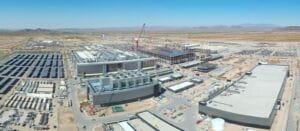Joyce Grossman became executive director of AAED in 2011. She has a B.A. from the University of California-Davis and a M.P.A. from California State University, Sacramento. Prior to joining AAED, Grossman was a deputy director with the City of Phoenix. She helped in attracting the International Genomics Consortium/Translational Genomics Research Institute to Phoenix. AZRE caught up with Grossman to talk about the development issues that impact Arizona’s commercial real estate industry.
What is AAED’s mission?
AAED’s mission statement, “AAED serves as Arizona’s unified voice advocating for responsible economic development through an effective program of professional education, public policy and collaboration,” should actually be called an “action statement.” We are proud of our Economic Development Academy of Arizona, which provides quality professional training specific to Arizona. In 2014, we will award the AZED PRO designations to our first Academy graduating class. Beyond education, we are busy working on economic tools to strengthen our economy. To that end, AAED works with lawmakers and is visible at the state capitol.
Who are the members?
AAED has a statewide membership of 480. It is a tight-knit community that works collaboratively for a strong economy in Arizona. Fifty-three percent of the membership is comprised of economic development and workforce practitioners. The other 47 percent are service providers who work in support of economic development in the fields of real estate, banking, construction, architecture, engineering and communications. Membership is open and encouraged for individuals who have a vested interest in advancing the economic development success of Arizona. A benefit of membership will be the lasting business relationships that will come from joining.
What are economic developers saying about Arizona’s economy?
Our members are lacing them up and running. If you can get economic practitioners to stop long enough to talk, they will likely tell you building permits are up and the retail dollar continues to be strong. They tell me that their phones are busier than they have been in years with quality prospects. This is great news for a state that dropped from No. 2 in job growth in 2007 to No. 49 in 2010. I was gratified to read that Forbes Magazine and Moody’s Analytics recently ranked Arizona at the top of U.S. states for projected job growth over the next five years. One thing I know for sure is our members are in the economic development race to win projects that produce quality jobs for Arizona.
Any other observations?
Arizona is being lauded nationally for its comeback, particularly in the housing market. In addition, the health industry grew during the recession and continues to outperform other sectors for growth in the state at the moment. While I am optimistic about our economy, I would be remiss if I did not note that we still have pockets of high unemployment in rural areas of the state. AAED counts many rural economic developers amongst our ranks. We hold rural economic development roundtable discussions to learn what impediments are impeding economic development and our Governmental Affairs Committee uses the dialogue in development of our legislative agenda for the year.
How is AAED different from when it started 40 years ago?
AAED predated many of the economic development organizations that exist today. In the early days of AAED, then the Arizona Association for Industrial Development (AAID), the association organized annual sales trips that would include industry leaders, services providers and the governor of Arizona. As regional organizations and cities opened their own economic development offices, AAID evolved its mission to be in support of economic development through professional education, advocacy and a place for collaboration and networking amongst like minds.




